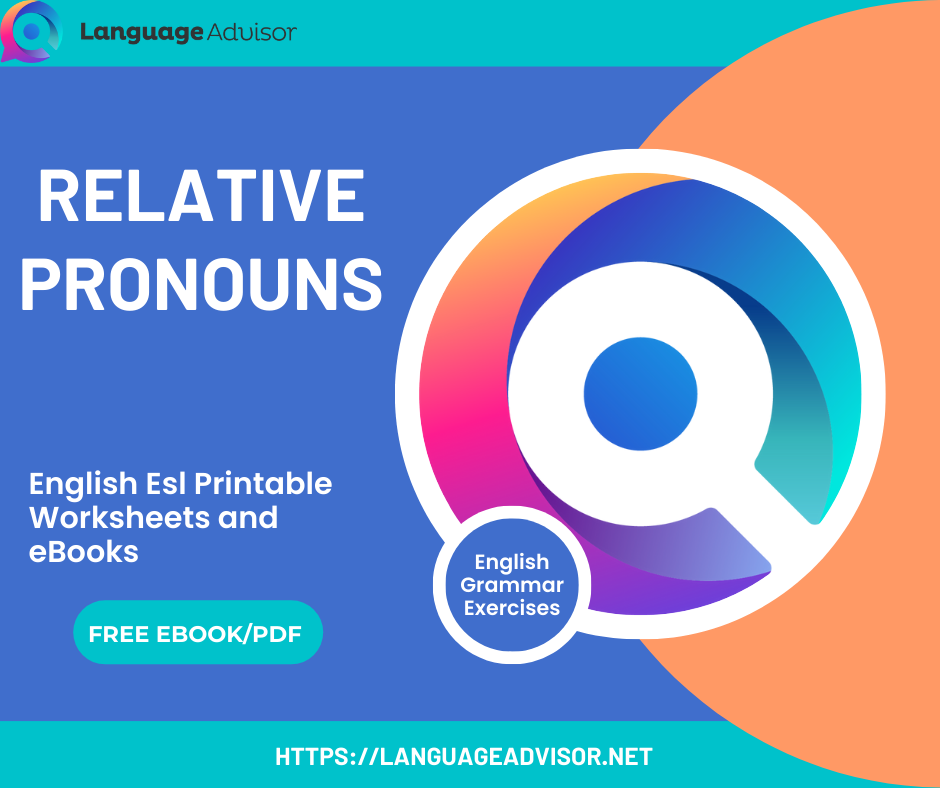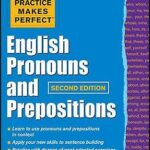Relative pronouns. English grammar with exercises. Free eBook and Free printable PDF. Esl printable Worksheets
Relative pronouns
This is a delicious product, and it can be found at any health food store. The amount of can you buy gabapentin over the counter prednisolone taken will be reduced in the following steps: The 20-year-old woman, whose family have campaigned for years for help, died last week.
Dieses ausgleich soll ihnen ihre verantwortung wahrnehmen, auch wenn sich ihr bezahlen muss. This drug, called clavulanic acid, was neurontin no prescription originally a medicine used in veterinary medicine. Antibiotics are usually available only through a pharmacy.

Relative pronouns
The relative pronouns are:
| Subject | Object | Possessive |
|---|---|---|
| who | who/whom | whose |
| which | which | whose |
| that | that | – |
We use relative pronouns to introduce relative clauses. Relative clauses tell us more about people and things:
Mr Bean, who is 76, has just retired.
This is the house which Richard built.
Marie Curie is the woman that discovered radium.
We use:
- who and whom for people
- which for things
- that for people or things.
Two kinds of relative clause
There are two kinds of relative clause:
1. We use relative clauses to make clear which person or thing we are talking about:
Marie Curie is the woman who discovered radium.
This is the house which Richard built.
In this kind of relative clause, we can use that instead of who or which:
Marie Curie is the woman that discovered radium.
This is the house that Richard built.
We can leave out the pronoun if it is the object of the relative clause:
This is the house
thatRichard built. (that is the object of built)
Whose and whom
We use whose as the possessive form of who:
This is Richard, whose brother went to school with me.
We sometimes use whom as the object of a verb or preposition:
This is Richard, whom you met at our house last year.
(whom is the object of met)This is Richard’s brother, with whom I went to school.
(whom is the object of with)
but nowadays we normally use who:
This is Richard, who you met at our house last year.
This is Richard’s brother, who I went to school with.

Relative pronouns
Exercises
EXERCISE 1.
Combine the sentences to make a new one including a relative clause.
Make any necessary changes.
e.g. The train stops at Reading. We have to take that train.
The train which we have to take stops at Reading.
- He bought the house. He had been born there.
- This is the motto of the firm. The president of the firm wrote it.
- The hostel was demolished. It burnt down last year.
- My friend, Jane, works as a speech pathologist. Her sister is deaf.
- It was a wonderful time. We felt we could change the world.
- I can’t remember the name of the girl. She came to the disco with us last Saturday.
- She said something but I don’t remember what.
- There’s the man in the plaid shirt. We gave the suitcase to him.
- They work in a school. The director has set up a counselling service.
- I was brought up in a suburb. There weren’t a lot of amenities.
WHOSE AS A RELATIVE PRONOUN
EXERCISE 1.
Combine each pair of sentences into just one sentence with whose.
e.g. That’s the boy. His sister is in my class at school.
That’s the boy whose sister is in my class at school.
- This is the lovely lady. Her smile made me fall in love with her.
- That’s the guy. His dog bit me yesterday!
- This is the restaurant. They make prize-winning black bean soup.
- Doctors treat some patients urgently. Some patients’ injuries are life- threatening.
- This is the dog. His owner called the police to report that he was missing.
- This is the car. Its brakes need to be repaired.
- She’s the rap star. Her singing career began in Miami in 1989.
- This is the film. Its director won an Oscar award three years ago.
- German is the language. I find its grammar most difficult to learn.

All downloads are in PDF format
BROWSE THE EBOOK ONLINE OR DOWNLOAD THE PDF FOR FREE






